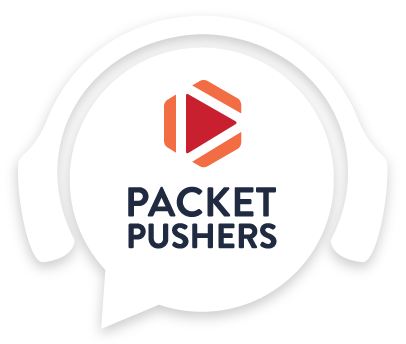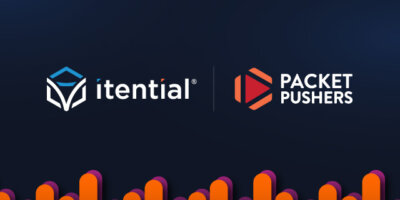Building a practice around network automation didn’t come all at once for Fiserv, one of the largest FinTech companies in the world.
From training engineers to learn Ansible and Python, to attempting to centralize automation expertise — they’ve made consistent progress, but they’ve also seen their fair share of challenges to get functioning automation off the ground. After a successful start, they realized when you get into network automation at scale, it’s more than just writing a simple script that replaces something you used to do by hand. When you’re trying to build a scalable system, the focus shifts.
Engineers don’t need a lot of help pushing config. Where automation really makes an impact is the surrounding work: maintaining standards, interacting with systems of record, ensuring processes are followed and incidents don’t occur.
That led to a need to scale automation. Insert orchestration: a solution for coordinating multiple automations across their distributed, multi-vendor environment to standardize and productize the way they deliver network services. With Itential, they’ve been able to lower the barrier to entry for automation and accelerate the way they deliver services, without compromising on quality.
Listen Here
What We Discuss in this Heavy Networking Episode
Michael Wynston, Director of Network Architecture & Automation at Fiserv is joined by Itential CTO Chris Wade and the Packet Pushers team to discuss challenges and successes in building an automation practice — how their team evolved from automation of individual tasks to orchestration of end-to-end processes and self-service delivery.
Michael, Chris, Ethan, & Drew dive into:
- The pivotal role of network automation in the fintech sector.
- Fiserv’s initial challenges and lessons learned in network automation attempts.
- How Fiserv transitioned from task automation to workflow orchestration with Itential.
- The importance of scalability and efficiency in handling global financial transactions.
- How standardization and best practices in automation contribute to network reliability.
- The concept of “low-code, no-code” platforms in empowering network engineers.
- Self-service capabilities and their impact on engineering efficiency.
- The relationship between automation practices and business outcomes – cost-saving, revenue generation, and risk mitigation.
How Itential Helps You Scale from Automation Silos to Orchestrated Operations by Standardizing Services
Itential’s orchestration and automation products are designed to reinforce best practices. Like Michael says in the podcast, “Network engineering is not an art. It should be a standard.”
With integration capabilities for your systems of record and IT stack, and the ability to orchestrate end-to-end processes in a modular, reusable way, Itential minimizes the opportunities for human error while providing a framework that helps you scale.

